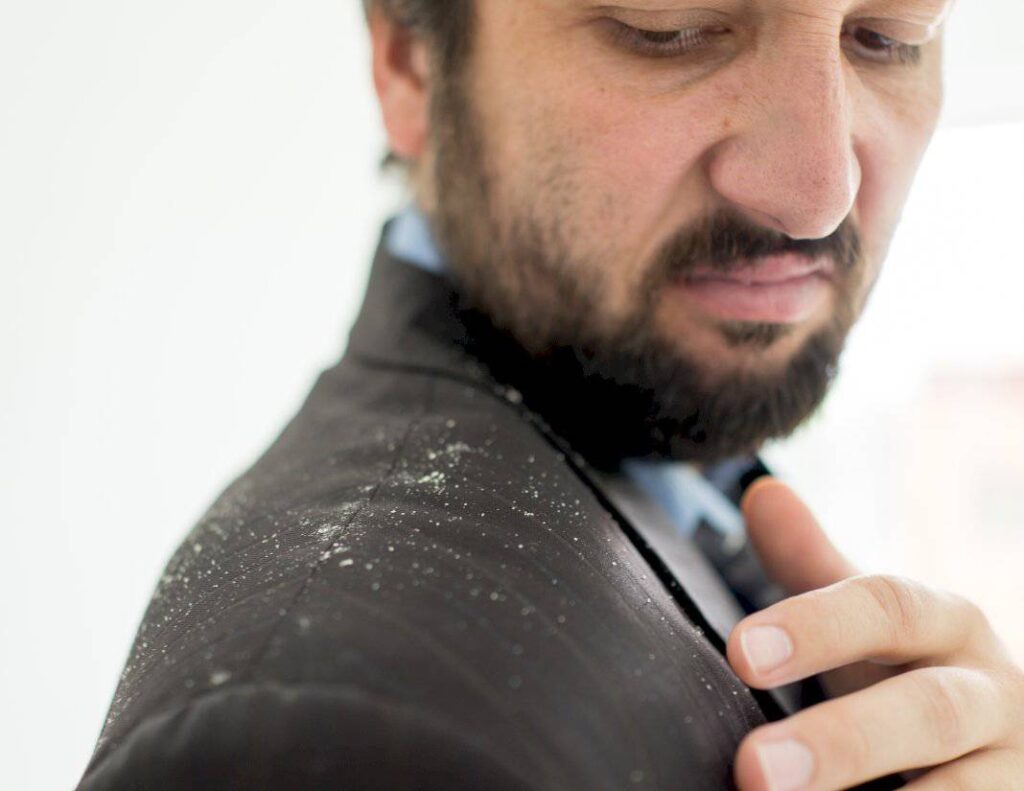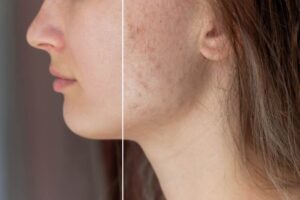Last Updated on 2 years ago by Nicky Johnson
- Hair loss is a common problem that affects millions in the US, both male and female.
- Stress, nutritional deficiencies, genetics, medical conditions, and medications can all lead to hair loss.
- Reducing dandruff, keeping the scalp healthy, protecting hair from damage, and seeing a trichologist are ways to prevent it.
- To slow down or reverse the hair loss process, reduce stress levels, and follow healthy diet/lifestyle practices.
- Visit a trichologist for professional help if sudden or excessive hair shedding occurs.
Hair loss is a common issue that affects millions of people worldwide, both male and female. While losing around 50-100 hairs daily is normal, excessive hair loss can cause concern.
Hair loss is a multi-dimensional problem with different causes. These insights can help you identify the root cause of your hair loss and take steps to prevent or reverse it.
Hair Loss in The U.S.
Blog Contents
It’s estimated that more than 35 million men and 20 million women in the United States suffer from hair loss. It’s so common that according to the American Academy of Dermatology, two-thirds of U.S. men will experience noticeable hair loss by age 35, and 85 percent have significantly thinning hair by age 50.
Hair loss is also a problem for many women, though they experience it differently than men. While male pattern baldness is characterized by receding hairlines and thinning crowns, female hair loss usually results in overall thinning without distinct patterns or patches of baldness.
Common Causes of Hair Loss

Several factors can cause hair loss. Here are some of them:
Stress
Chronic stress can negatively affect your health, including hair loss. Stress can cause hair follicles to enter the resting phase, leading to shedding. In severe cases, stress can trigger a type of hair loss called telogen effluvium, which can cause widespread shedding all over the scalp.
To prevent stress-related hair loss, practice stress management techniques like meditation, exercise, or talking to a therapist.
Nutritional Deficiencies
Hair growth requires a variety of key nutrients, including vitamins, minerals, and protein. A poor diet lacking these essential nutrients can lead to hair loss.
Iron deficiency anemia is one of the most common nutritional deficiencies associated with hair loss.
Vegetarians and vegans are more prone to iron deficiency because they don’t consume meat, a dietary iron source. Eating a healthy diet rich in essential nutrients is crucial, and consider taking supplements if necessary.
Genetics
Hair loss can also be due to hereditary factors. Androgenetic alopecia, or male or female pattern baldness, is a common type of hair loss in families.
It is caused by a combination of genetic and hormonal factors that leads to hair follicles shrinking and eventually stopping hair production.
While genetics cannot be changed, treatments like minoxidil, finasteride, or hair transplant surgery can slow or reverse hair loss.
Medical Conditions
Certain medical conditions can cause hair loss as a symptom. Autoimmune disorders like lupus, thyroid disorders like hypothyroidism or hyperthyroidism, scalp infections, and alopecia areata are some medical conditions that can interfere with hair growth and cause hair loss. In these cases, treating the underlying medical condition is necessary to regain hair growth.
Medications
Some medications can cause hair loss as a side effect. Chemotherapy drugs, blood thinners, antidepressants, and high-dose vitamin A supplements are some examples of medications that can interfere with hair growth. In most cases, hair growth resumes after the medication is stopped, but it’s essential to talk to your doctor before stopping any medication.
Preventing Hair Loss

There are some ways to prevent hair loss. Here are four effective ways:
Reduce Dandruff
Dandruff is a sign of an unhealthy scalp and can also be a cause of hair loss. To reduce dandruff, use a reliable anti dandruff conditioner. This shampoo uses salicylic acid, coal tar, and pyrithione zinc to help reduce dandruff. Additionally, shampoo your hair regularly and avoid excessive styling products.
Keep Your Scalp Healthy
A healthy scalp is essential for healthy hair growth. Use an oil-free moisturizing shampoo designed specifically for the scalp to keep it clean and hydrated. Massaging the scalp can also promote blood circulation and stimulate hair growth.
Protect Hair From Damage
Avoid using heated styling tools like curlers or straighteners excessively, as these can damage hair follicles and lead to breakage or shedding. Also, use protective measures like a heat protection spray before using any hot tool on your hair.
See A Trichologist
If you are experiencing sudden or excessive hair shedding, it’s always best to seek professional help. A trichologist is a hair and scalp specialist who can diagnose the underlying issue and provide treatment accordingly.
Hair loss is a common problem that affects millions of people worldwide. With most common causes, lifestyle factors like stress and poor scalp health can also be contributing factors.
To keep your hair healthy and prevent further hair loss, take steps to reduce stress levels and see a trichologist if needed. With proper treatment and care, you can reverse or slow down the process of hair loss.







